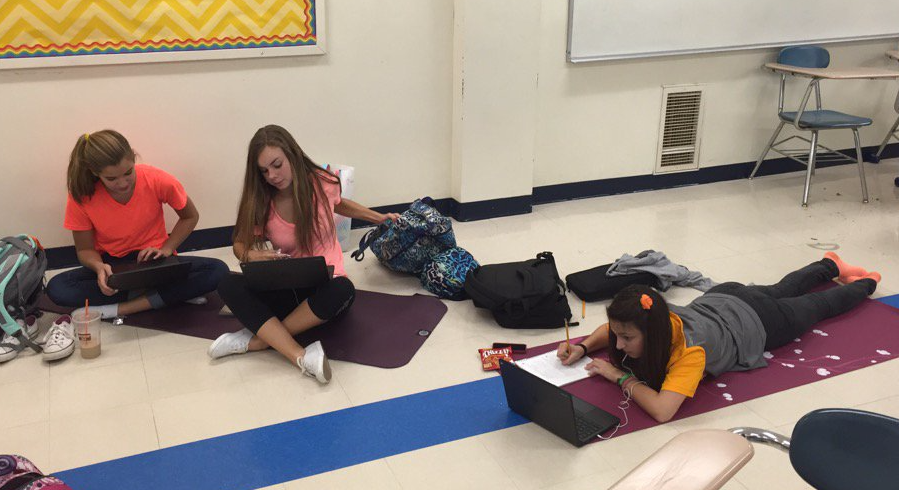Mid-year Self-Assessment
- Jason Appel
- Jan 17, 2016
- 3 min read
Read my first blog post for more information about my Fuse RI project.
Now that I’ve been using EDpuzzle as an integral part of my playlists for a few months, I thought it was time to dig deeper and assess how well things are going in my classroom. Before I do that, I want to provide some background information. I am teaching three sections of Geometry this year. My school offers three levels of Geometry: honors, regular and conceptual. Two of my sections are conceptual, and one is regular. The conceptual classes consist of sophomores who took Algebra I last year (plus one senior failed the course as a sophomore). 38% have IEPs and 38% are being targeted for RTI support. I do not have an aid or co-teacher in my classroom. The regular class is a mix of sophomores (46%) and freshmen (54%), who took Algebra I in middle school. There are no IEPs in the regular class.
In my school, we use common assessments in all of our mathematics classes (quizzes, tests, midterm and final exams). So far, my limited amount of data shows some improvement when compared with last year as well as with other similar classes taking the same assessments this year.


It should be noted that my students are not being assigned homework. I’m going to repeat that in case you were reading too quickly...I just said I am not assigning homework, and my students are performing as well or better than their peers who are receiving an average of 20-30 minutes of homework per night. If you want to get a sense of my feelings about homework, read one of Alice Keeler’s posts about it. She has really been pushing my thinking regarding homework recently.
The fact that my students are keeping pace with their peers without assigned homework is telling. Nearly every minute of class time is spent working, thinking, problem solving and asking questions. Students who are motivated to learn progress at their own pace and get exactly what they need to improve exactly when they need it. More advanced students get to spend class time on high level, challenging problems, pushing themselves as far as they are able to go. Others are able to take their time, ask lots of questions, and not move on until they feel they’re ready. My philosophy in terms of homework is that students will assign it to themselves. If they didn’t understand something in a playlist, they might decide to revisit it outside of class. If they are falling behind, they might do a little extra work to catch up.

This may sound like classroom bliss, and often it is. However for some of my most struggling students, the playlist model is not working well. This is not to say it is any worse than in a traditional classroom. In a traditional classroom, the teacher spends a large percentage of the time doing the work while students are passive. In my classroom, students are working and thinking bell to bell. Some students lack the skills to sustain independent work, and are not adapting to doing so in my classroom. I struggle daily with finding the balance between allowing students to police themselves, and stepping in to redirect them back on task. Many of my students have learned to manage their time effectively, taking an occasional mental break as needed, and then returning to their work. I’m still searching for the magic potion that will enable every single student to actively engage in the learning in my classroom. I understand that there is no potion, rather it is up to me to continue to strengthen relationships and build trust. To be continued!...




Comments